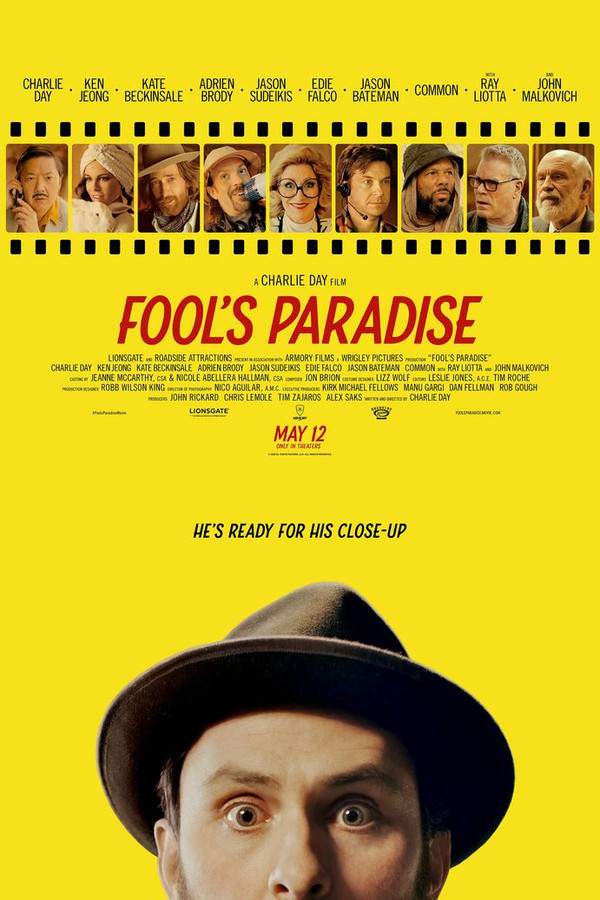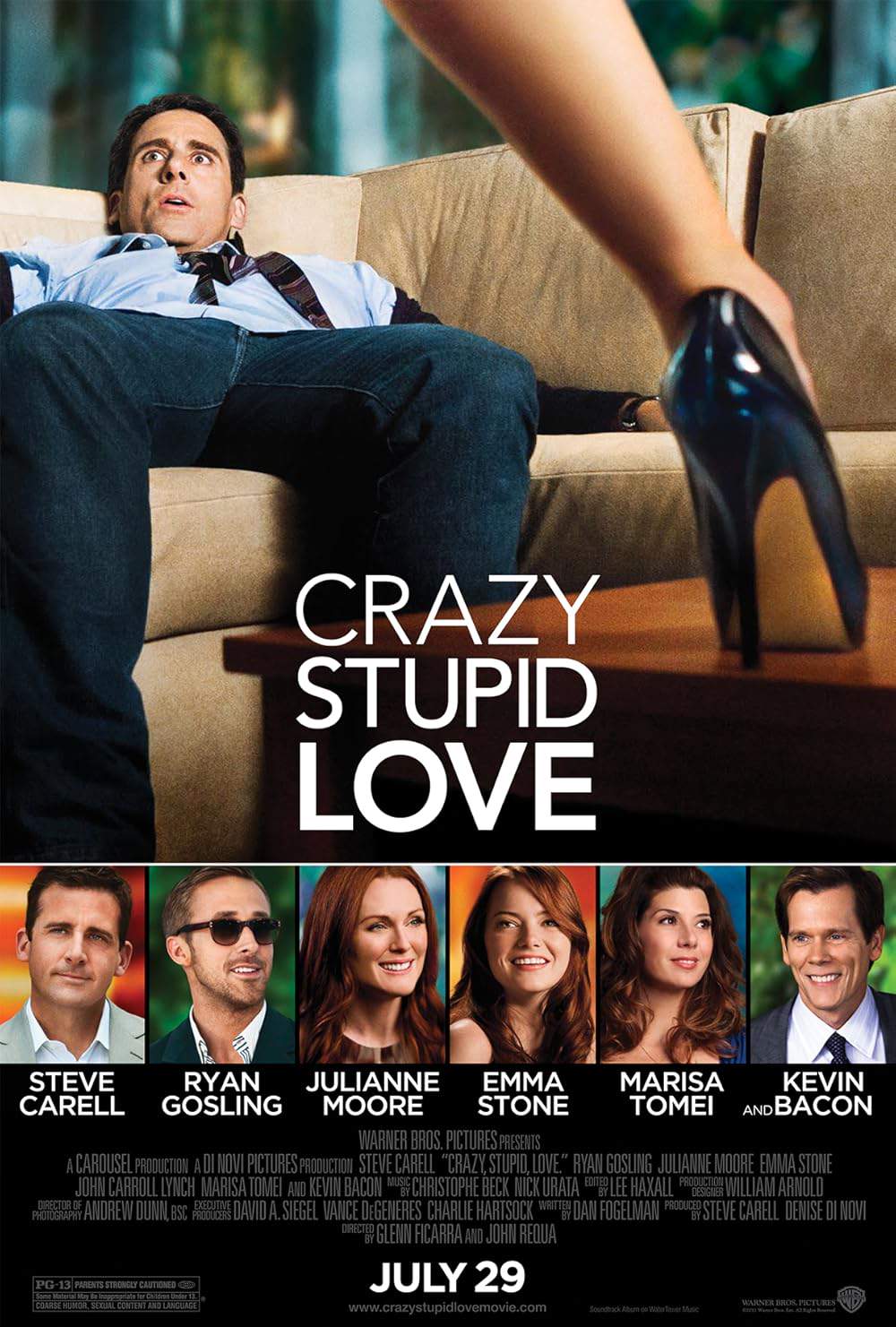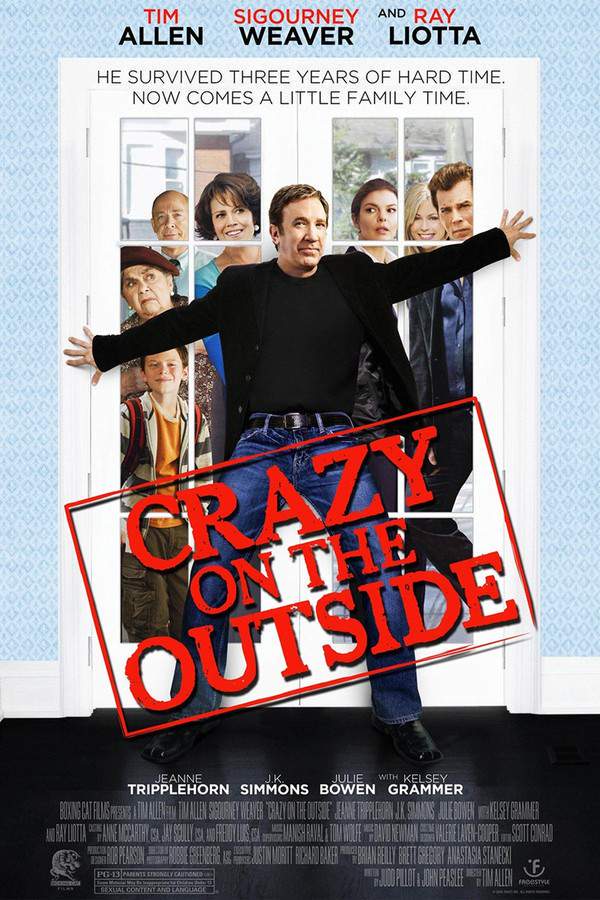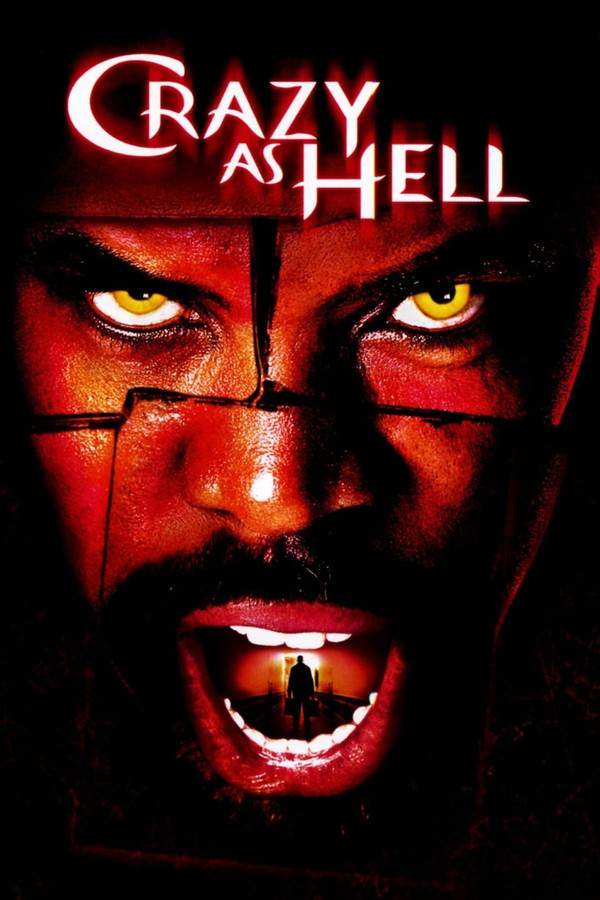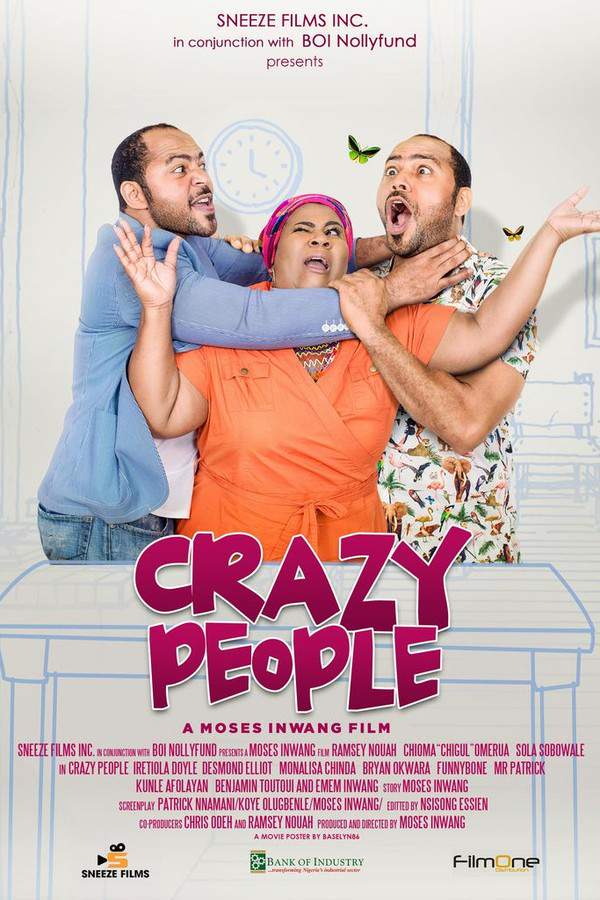
Crazy People 1990
Directed by

Barry L. Young
Made by
Paramount Pictures
Test your knowledge of Crazy People with our quiz!
Crazy People Plot Summary
Read the complete plot summary and ending explained for Crazy People (1990). From turning points to emotional moments, uncover what really happened and why it matters.
In the midst of a professional meltdown, Emory Leeson, portrayed by Dudley Moore, plunges into a bout of anxiety and begins discarding his customary flair for advertising. Instead, he experiments with a range of transparently honest advertisements that challenge the status quo of his industry. This drastic shift shocks his coworkers, including J.T. Walsh as Stephen Bachman, who, seeing Emory’s rapid descent, intervenes by having him committed to a psychiatric hospital.
Upon arriving at the hospital, Emory finds himself immersed in a new and bewildering environment. Here, he meets intriguing fellow patients, such as the complex Kathy Burgess, played by Daryl Hannah, whose apparent fragility masks a fierce resilience. Another noteworthy character is George, whose charmingly limited vocabulary consists only of the word “Hello!”
Things take a surprising twist when Emory’s unorthodox advertisements are accidentally released and shockingly gain acclaim, disrupting the advertising world as his boss, Drucker, claims credit for the groundbreaking idea. Meanwhile, Emory’s creativity doesn’t go unnoticed; his hospital connections thrive as he and a handful of patients, including Paul Bates as Kathy’s brother, start innovating outside the conventional bounds of their illness.
Despite the corporate meddling by Drucker, who employs Bill Smitrovich and others to replicate Emory’s success, none can capture the original’s magic. While confined to the hospital, Emory insists on involving his fellow patients in crafting new advertisements, ensuring they receive their share of recognition and pay. This unique collaboration transforms the hospital into an unlikely hub for advertising ingenuity, as they brainstorm quirky slogans like, >“Forget Paris. The French can be annoying. Come to Greece. We’re nicer!” and “Come… IN the Bahamas” for tourism.
As confidence builds within the group, so too do the strides the patients make in their recovery, with George evolving from his singular phrase into a more loquacious individual. However, not everyone welcomes these changes—Drucker and the administration grow increasingly antagonistic, seeking to cut Emory off from his creative team. Yet, steadfast in her support, Dr. Baylor, Emory’s therapist, champions the patients’ artistic pursuits.
Amidst this creative renaissance, a romance blossoms between Emory and Kathy. Together, they hatch a daring plan to escape the confines of the hospital aboard an army helicopter piloted by Kathy’s brother. Joined by their fellow patients, including Sony who serves as their first client with a cheeky campaign slogan, they venture into a new chapter in life enriched by creativity, empathy, and an abundance of humor.
Crazy People Timeline
Follow the complete movie timeline of Crazy People (1990) with every major event in chronological order. Great for understanding complex plots and story progression.
Emory's Professional Meltdown
Emory Leeson experiences a significant professional meltdown, which leads him to abandon his usual advertising style. He begins experimenting with brutally honest advertisements, challenging the norms of the advertising industry.
Stephen Bachman's Intervention
Noticing Emory's rapid decline in mental health, his coworker Stephen Bachman intervenes by arranging for Emory to be committed to a psychiatric hospital. This decision marks a critical turning point in Emory's life.
Entering the Hospital
Upon his arrival at the hospital, Emory is introduced to a bewildering new environment filled with complex patients. Here, he meets Kathy Burgess, whose fragile exterior hides a resilient spirit, and George, who only knows how to say 'Hello!'
Accidental Success
In a surprising turn of events, Emory's honest advertisements are accidentally released to the public. They unexpectedly gain acclaim, shaking the foundations of the advertising world and catching the attention of his boss, Drucker, who inappropriately claims the credit.
Creative Collaborations
While at the hospital, Emory collaborates with fellow patients to create innovative advertisements. They celebrate their creativity, ensuring that each patient is recognized for their contributions and talent.
Innovative Advertising Slogans
Together, the group brainstorms whimsical and quirky advertising slogans that defy traditional methods. Their creativity leads to catchy slogans like, 'Forget Paris. The French can be annoying. Come to Greece. We're nicer!'
Building Confidence
As the group gets more involved in advertising, the patients also experience personal growth and recovery. George, who was initially limited in communication, begins to express himself more freely, showcasing his newfound confidence.
Corporate Sabotage
Drucker grows increasingly antagonistic towards Emory and his creative team. He attempts to undermine their success by hiring others to replicate their advertisement style but fails to capture the original's essence.
Dr. Baylor's Support
Dr. Baylor, Emory's therapist, plays a vital role in supporting the patients' artistic endeavors. She advocates for their creativity, contrasting sharply with the corporate interests threatening to dismantle their progress.
A Blossoming Romance
Amidst the chaos and creativity, a romantic relationship begins to develop between Emory and Kathy. Their connection grows deeper as they collaborate and support each other's recovery journeys.
Daring Escape Plan
Together, Emory and Kathy devise a bold plan to escape the hospital using an army helicopter piloted by Kathy's brother. This signifies not only a physical escape but also a leap into a new and optimistic future.
First Client
The group successfully secures their first client, igniting their advertising venture outside the hospital. Sony's cheeky campaign slogan marks the start of their enterprising spirit and determination.
New Beginnings
With a blend of creativity, humor, and empathy, the patients, led by Emory and Kathy, step into a new chapter of their lives. They embrace their potential as they leave behind the confines of the psychiatric hospital.
Crazy People Characters
Explore all characters from Crazy People (1990). Get detailed profiles with their roles, arcs, and key relationships explained.
Emory Leeson (Dudley Moore)
Emory is a creative advertising executive who experiences a professional crisis that leads him to develop brutally honest ads. His character evolves from being overwhelmed by anxiety to harnessing the raw creativity of himself and his fellow patients. Emory's journey captures resilience and the importance of collaboration in the pursuit of artistic expression.
Kathy Burgess (Daryl Hannah)
Kathy is a fellow patient who initially appears fragile but possesses a strong inner resilience. Her relationship with Emory adds depth to her character, highlighting her transformative journey. Kathy’s growth reflects the impact of creativity and support on mental wellness.
Stephen Bachman (J.T. Walsh)
As Emory's coworker, Stephen plays a critical role in escalating Emory's situation, leading to his commitment. His actions stem from concern, yet they push Emory into a new world where he discovers his potential. Stephen embodies the corporate pressure that often stifles creativity.
Dr. Baylor
Dr. Baylor is Emory's supportive therapist who champions the creative endeavors of the patients. She embodies a compassionate approach to therapy, recognizing the value of artistic expression in recovery. Her guidance helps to foster a nurturing environment in the hospital.
Crazy People Settings
Learn where and when Crazy People (1990) takes place. Explore the film’s settings, era, and how they shape the narrative.
Time period
The events transpire in a contemporary period reflective of the evolving attitudes toward mental health and creativity. It captures a moment where unconventional ideas begin to disrupt traditional business practices, particularly in advertising.
Location
Psychiatric Hospital, Greece, The Bahamas
The movie primarily takes place in a psychiatric hospital where patients gather to innovate and collaborate on advertising concepts. This hospital setting becomes a vibrant hub for creativity, contrasting the traditional advertising world outside. Additionally, the advertisements reference tourism spots such as Greece and the Bahamas, evoking a sense of escape and leisure.
Crazy People Themes
Discover the main themes in Crazy People (1990). Analyze the deeper meanings, emotional layers, and social commentary behind the film.
🎨
Creativity
Creativity is a central theme as Emory defies advertising norms by embracing honesty. His journey illustrates how innovation can emerge from unconventional places, highlighting the power of collaboration among individuals facing adversity. The film showcases how creativity can function as a healing mechanism in the context of mental health.
❤️
Romance
A budding romance between Emory and Kathy adds an emotional layer to the narrative. Their relationship develops amidst the backdrop of recovery, illustrating how love can flourish even in challenging environments. This romance also serves as a catalyst for their daring escape plan, symbolizing hope and new beginnings.
🤝
Collaboration
The theme of collaboration shines through as Emory engages his fellow patients in creating advertising campaigns. Their teamwork not only fosters a sense of belonging but also enhances their personal growth throughout the film. It emphasizes that shared creativity can lead to significant transformations, both personally and professionally.

Coming soon on iOS and Android
The Plot Explained Mobile App
From blockbusters to hidden gems — dive into movie stories anytime, anywhere. Save your favorites, discover plots faster, and never miss a twist again.
Sign up to be the first to know when we launch. Your email stays private — always.
Crazy People Spoiler-Free Summary
Discover the spoiler-free summary of Crazy People (1990). Get a concise overview without any spoilers.
In the high‑pressure world of a top‑tier advertising agency, the relentless chase for the perfect pitch has left its most brilliant mind, Emory Leeson, teetering on the edge of sanity. When his avant‑garde ideas begin to dissolve into bewildering honesty, his company’s ruthless leadership decides the only solution is a stint in a psychiatric hospital. The institution, far from the sleek boardrooms Emory knows, becomes a surprisingly vivid backdrop where the absurdities of corporate culture collide with the raw, unfiltered humanity of its patients.
Inside the ward, a colorful mosaic of characters emerges, each carrying their own quirks and wounds. Among them is Kathy Burgess, a seemingly fragile woman whose keen eyes and hidden strength hint at depths far beyond the diagnosis on her chart. Guiding this eclectic group is Dr. Baylor, a therapist whose belief in the therapeutic power of creativity fuels an unlikely experiment: turning the patients’ unconventional perspectives into groundbreaking advertising concepts. The clash between Emory’s polished, cynical instincts and the patients’ unvarnished honesty creates a fertile tension that is both hilarious and oddly moving.
As Emory reluctantly embraces this new collaborative canvas, the hospital transforms into an unlikely incubator of ideas that challenge the industry’s conventions. The tone balances sharp satire—sketching the ridiculousness of corporate pretension—with heartfelt moments that reveal the genuine connections forming among strangers. Through witty banter, off‑beat slogans, and a gentle sense of camaraderie, the film paints a picture of a world where sanity and creativity are not opposites but intertwined paths, inviting the audience to wonder what might happen when a place meant for healing becomes the most unexpected source of inspiration.
Can’t find your movie? Request a summary here.
Movies with Similar Twists and Themes
Uncover films that echo the narrative beats, emotional arcs, or dramatic twists of the one you're exploring. These recommendations are handpicked based on story depth, thematic resonance, and spoiler-worthy moments — perfect for fans who crave more of the same intrigue.
Featured on this page

What's After the Movie?
Not sure whether to stay after the credits? Find out!
Explore Our Movie Platform
New Movie Releases (2026)
Famous Movie Actors
Top Film Production Studios
Movie Plot Summaries & Endings
Major Movie Awards & Winners
Best Concert Films & Music Documentaries
Movie Collections and Curated Lists
© 2026 What's After the Movie. All rights reserved.


